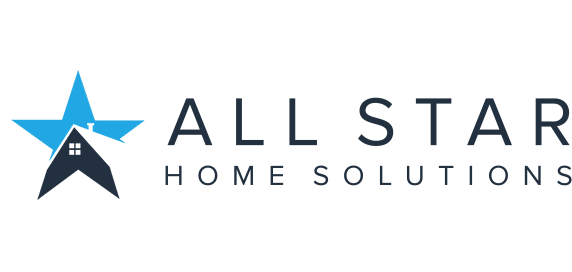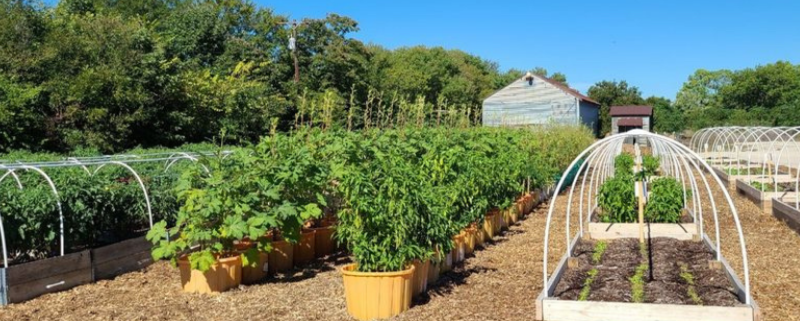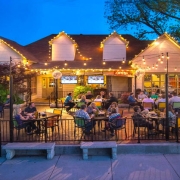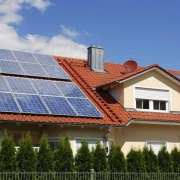The rise of urban farming in Dallas neighborhoods
Urban farming is experiencing a resurgence in Dallas, as residents and communities embrace sustainable agriculture practices in the heart of the city. From rooftop gardens to community-supported agriculture initiatives, urban farming is transforming neighborhoods and fostering a deeper connection to food and the environment. This article explores the growing trend of urban farming in Dallas, highlighting its benefits, challenges, and impact on local communities.
The Urban Farming Movement
Urban farming encompasses a range of agricultural activities conducted within urban areas, including growing fruits, vegetables, herbs, and raising livestock. In Dallas, the urban farming movement has gained momentum in recent years, driven by a combination of factors, including increasing interest in sustainability, food security concerns, and a desire for community engagement. Residents are reclaiming vacant lots, rooftops, and other underutilized spaces to cultivate fresh produce and promote local food production.
Benefits of Urban Farming
Urban farming offers numerous benefits to both individuals and communities. By growing food locally, urban farmers reduce the carbon footprint associated with transportation and distribution, contributing to environmental sustainability. Additionally, urban farming promotes food security by increasing access to fresh, nutritious produce in underserved neighborhoods where access to healthy food options may be limited. Moreover, urban farming creates opportunities for community building and education, as residents come together to work on shared agricultural projects and learn about sustainable farming practices.
Challenges and Opportunities
While urban farming presents many opportunities, it also comes with its share of challenges. Limited space, soil contamination, zoning regulations, and access to water are among the most common obstacles faced by urban farmers in Dallas. However, innovative solutions such as vertical farming, hydroponics, and aquaponics are helping overcome these challenges, allowing farmers to maximize productivity in urban environments. Additionally, partnerships with local governments, non-profit organizations, and businesses can provide support and resources to urban farmers, helping them navigate regulatory hurdles and access funding opportunities.
Community Gardens and Urban Agriculture Projects
Community gardens are at the forefront of the urban farming movement in Dallas, serving as hubs for community engagement, education, and food production. These shared spaces allow residents to grow their own food, connect with nature, and build relationships with their neighbors. In addition to community gardens, Dallas is home to various urban agriculture projects, including urban orchards, beekeeping initiatives, and farm-to-school programs, which promote sustainable food systems and environmental stewardship.
Impact on Neighborhoods
The rise of urban farming is reshaping neighborhoods in Dallas, fostering a sense of pride and ownership among residents. Community gardens and urban farms beautify vacant lots and neglected spaces, turning them into vibrant green spaces that enhance the quality of life for residents. Moreover, urban farming promotes social equity by providing access to healthy food options in underserved communities, addressing food deserts and promoting economic empowerment through entrepreneurship and job creation.
Educational Initiatives and Outreach
Education is a fundamental component of the urban farming movement, empowering individuals with the knowledge and skills needed to grow food sustainably. In Dallas, educational initiatives and outreach programs play a vital role in promoting urban farming and engaging residents in agricultural activities. Schools, community centers, and non-profit organizations offer workshops, classes, and hands-on learning opportunities, teaching residents of all ages about gardening, nutrition, and environmental conservation.
The rise of urban farming in Dallas is a testament to the resilience and creativity of its residents, who are reimagining the city’s landscape and promoting sustainability one garden at a time. As the urban farming movement continues to grow, it has the potential to address pressing issues such as food insecurity, environmental degradation, and community disconnection. By supporting urban farmers, investing in green infrastructure, and fostering a culture of sustainability, Dallas can cultivate a healthier, more resilient city for future generations.












Leave a Reply
Want to join the discussion?Feel free to contribute!